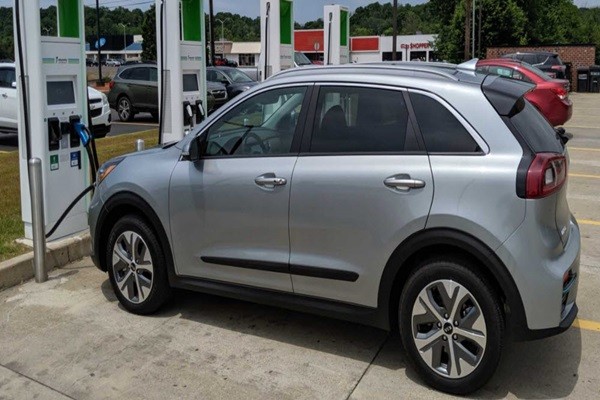Brussels, 16 April 2020 – As Europe is grappling with the health, social and economic impacts of COVID-19, the European Automobile Manufacturers’ Association (ACEA) has set out four guiding principles for a successful re-launch of the auto industry, which will be vital to the wider economic recovery of the continent. “It is in Europe’s interest… Continue reading Press Releases – Corona crisis: Guidelines for re-launch of EU auto industry
Tag: VW
Bentley extends UK production shutdown by three weeks over coronavirus
Carmaker Bentley said on Thursday it was extending its plant shutdown by three weeks and would begin limited production on May 11 with full output due to resume a week later, as coronavirus lockdown measures remain in place in Britain.
German carmakers to resume production as lockdowns ease
FRANKFURT (Reuters) – German carmakers including Volkswagen (VOWG_p.DE) and Mercedes-Benz (DAIGn.DE) will restart production at some German factories next week after the country eased restrictions designed to contain the coronavirus outbreak. FILE PHOTO: An employee fixes a VW sign at a production line of the electric Volkswagen model ID.3 in Zwickau, Germany, February 25, 2020.… Continue reading German carmakers to resume production as lockdowns ease
Auto supplier Magna preparing for N. America return to work May 4 -exec
DETROIT (Reuters) – Canadian auto supplier Magna International Inc (MG.TO) is planning for a return to production in North America on May 4, with a subsequent gradual increase in output as the industry recovers from the shutdown caused by the coronavirus pandemic, a top executive said on Wednesday. Most U.S. states have stay-at-home orders in… Continue reading Auto supplier Magna preparing for N. America return to work May 4 -exec
@VW Group: Volkswagen starts with step-by-step resumption of production
The plants of the Volkswagen Passenger Cars brand are to successively restart production. First, production is to be resumed at the plants in Zwickau and Bratislava (Slovakia) in the week from April 20. The other plants in Germany and in Portugal, Spain, Russia and the USA are to restart production in the week from April… Continue reading @VW Group: Volkswagen starts with step-by-step resumption of production
@VW Group: 15 years of Bugatti Veyron – how it all began.
In 1997, on the “Shinkansen” express train between Tokyo and Nagoya, a sketch was created that would change the automotive world. Following a discussion with the then Head of Powertrain Development at VW, Karl-Heinz Neumann, he drew on an envelope – he had had the idea for a long time – an engine with 18… Continue reading @VW Group: 15 years of Bugatti Veyron – how it all began.
@VW Group: Bugatti working from home – vehicle development continues
Bugatti has suspended production of its vehicles such as the Chiron1 and Divo2 in Molsheim. Nevertheless, many employees are continuing to work from home, taking into account the recommendations of the relevant authorities, international experts and government measures. Lars Fischer, head of chassis testing and application at Bugatti, and Sven Bohnhorst, chassis setup engineer, are… Continue reading @VW Group: Bugatti working from home – vehicle development continues
Press Releases – COVID-19: Automotive industry signs joint Code of Business Conduct to support re-start of production
Brussels, 15 April 2020 – CLEPA (the European Automotive Suppliers’ Association) and ACEA (the European Automobile Manufacturers’ Association) have jointly adopted a ‘Code of Business Conduct in view of COVID-19’ to support a rapid and smooth restart of the automotive industry. The automotive eco-system resembles an intricate clockwork and today’s unprecedented standstill of operations risks… Continue reading Press Releases – COVID-19: Automotive industry signs joint Code of Business Conduct to support re-start of production
Auto parts maker Marelli, unions agree measures to enable return to work
MILAN (Reuters) – Auto parts maker Marelli and unions agreed on Wednesday on a package of health and security measures to allow the company to gradually resume its Italian operations when Rome eases lockdown restrictions, they said in separate statements. The Italian government last week extended until May 3 nationwide limits on movements and manufacturing… Continue reading Auto parts maker Marelli, unions agree measures to enable return to work
Kia Motors to Use Volkswagen’s Electric Vehicle Charging Infrastructure within the U.S.
Kia Motors is planning to work with Volkswagen Group, which is currently operating the biggest charging infrastructure in the U.S., in order to expand its electric vehicle business within the North American market. This collaboration is drawing eyes as it is the first case of collaboration between two electric vehicle competitors.According to the industry, Kia… Continue reading Kia Motors to Use Volkswagen’s Electric Vehicle Charging Infrastructure within the U.S.
